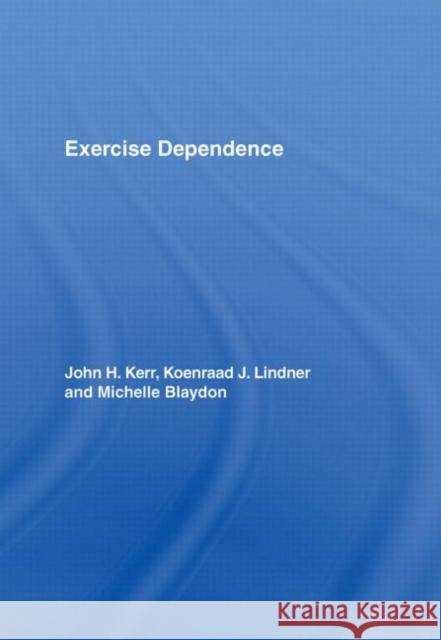Exercise Dependence » książka
Exercise Dependence
ISBN-13: 9780415393447 / Angielski / Twarda / 2007 / 200 str.
Exercise Dependence
ISBN-13: 9780415393447 / Angielski / Twarda / 2007 / 200 str.
(netto: 205,19 VAT: 5%)
Najniższa cena z 30 dni: 201,44
ok. 22 dni roboczych.
Darmowa dostawa!
Exercise dependence or addiction has been described as a 'positive addiction', but it can have links with damaging dysfunctional and excessive behaviours, including eating disorders. Clinical and sport psychologists now acknowledge the condition and report that it can be found in recreational exercisers and competitive athletes. This is the first text to provide a comprehensive guide to exercise dependence. The text contains case studies and reviews research into exercise dependence in both 'exercise' and 'sports' contexts. The authors examine the condition in the widest sense, exploring different types of exercise dependence, risk factors associated with the condition, the experiences and motivational characteristics of sufferers, links with eating disorders, and a number of approaches to counselling. This text will be of significant interest to psychologists working in sport, health and clinical practice, as well as to athletes and sports coaches, particularly those involved in endurance sports associated with higher incidences of exercise dependence.
Exercise dependence or addiction has been described as a 'positive addiction', but it can have links with damaging dysfunctional and excessive behaviours, including eating disorders. Clinical and sport psychologists now acknowledge the condition and report that it can be found in recreational exercisers and competitive athletes.
This is the first text to provide a comprehensive guide to exercise dependence. The text contains case studies and reviews research into exercise dependence in both 'exercise' and 'sports' contexts. The authors examine the condition in the widest sense, exploring different types of exercise dependence, risk factors associated with the condition, the experiences and motivational characteristics of sufferers, links with eating disorders, and a number of approaches to counselling.
This text will be of significant interest to psychologists working in sport, health and clinical practice, as well as to athletes and sports coaches, particularly those involved in endurance sports associated with higher incidences of exercise dependence.











